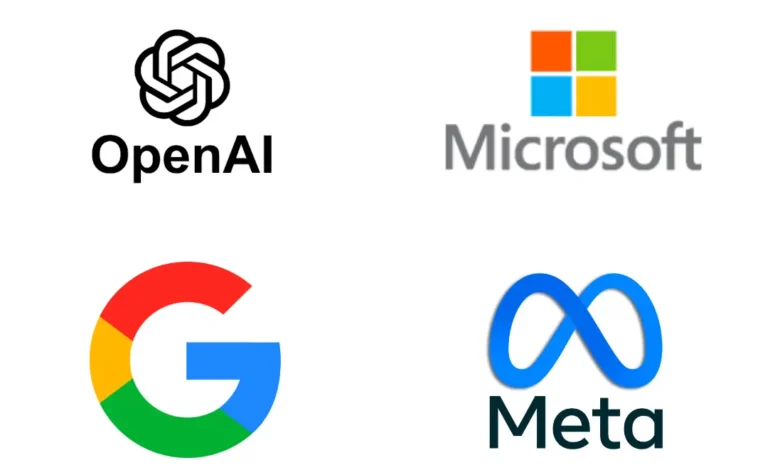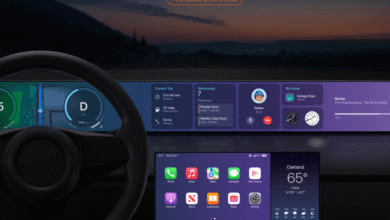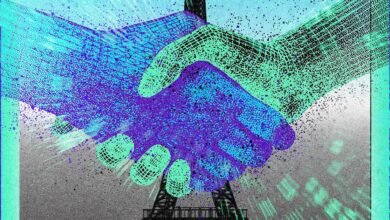Quick Reads
[Quick Read] The Silicon Giants Respond: AI Strategies of OpenAI, Google, Microsoft, and Meta

This article is part of the ‘AI in the Code Realm’ quick reads series, exploring how AI is reshaping the landscape of software development.
OpenAI’s Response to Claude with Innovations in Coding Models Like Codex
- Competitive Edge: OpenAI has felt the heat from Anthropic’s Claude, particularly in the realm of coding assistance. This has spurred OpenAI to refine its offerings, with a significant focus on enhancing the capabilities of Codex, the AI model behind GitHub Copilot.
- Innovation: The latest iterations of OpenAI’s models are designed to provide more nuanced coding support, including better handling of long context windows, improved code suggestion accuracy, and the ability to learn from user corrections to tailor responses more closely to individual coding styles.
- Ethical Considerations: OpenAI continues to grapple with the ethical implications of AI, particularly around job displacement and AI safety, which influences their development strategy, ensuring that their tools empower rather than replace developers.
Google’s Project Jarvis and Gemini: Aiming for Autonomous Task Completion
- Project Jarvis: Google is exploring AI capabilities beyond simple assistance with initiatives like Project Jarvis, which aims at AI models that can autonomously perform complex tasks, including coding. This project signifies Google’s ambition to create an AI that not only assists but can independently execute tasks, reducing the human effort in repetitive coding scenarios.
- Gemini: Google’s Gemini model is another response, directly competing with Claude in terms of code understanding and generation. Gemini is engineered for scalability, aiming to integrate seamlessly across Google’s product ecosystem, from Google Cloud to Android development tools.
- Focus on Integration: Google’s strategy seems to lean towards deeply embedding AI into its existing services, enhancing productivity for developers already within its ecosystem.
Microsoft’s Azure AI and GitHub Copilot Updates in Light of Claude’s Capabilities
- Azure AI: Microsoft has been fortifying its Azure AI platform to offer more robust, developer-friendly AI services. The integration of AI in GitHub, particularly through GitHub Copilot, has seen updates to match or surpass Claude’s features, focusing on real-time collaboration, code review assistance, and personalized code suggestions.
- Partnership with OpenAI: Microsoft’s strategic partnership with OpenAI allows it to quickly adapt and incorporate cutting-edge AI advancements into its offerings, ensuring that their tools remain at the forefront of coding assistance technology.
- Developer Ecosystem: Microsoft emphasizes creating an ecosystem where developers can easily adopt AI tools, with a focus on security, compliance, and integration with other Microsoft services.
Meta’s Llama and the Push Towards Ethical AI in Response to Industry Trends
- Llama: Initially not as focused on coding, Meta’s Llama model is now evolving to include developer-friendly features. The response to Claude includes enhancing Llama’s capabilities in understanding and generating code, aiming to provide a cost-effective or even free alternative to other premium AI coding assistants.
- Research Focus: Meta has increased its focus on AI safety and ethics, inspired by the industry’s move towards more responsible AI development. This includes transparency in how models like Llama are trained and how they handle bias or ethical dilemmas in coding scenarios.
- Open-Source Initiatives: Unlike some competitors, Meta has occasionally leaned towards open-source approaches, which could foster broader community involvement in improving and customizing AI for coding.
Common Themes Across Giants
- Ethical AI: There’s a concerted effort across these companies to address AI ethics, particularly in how AI assistants interact with coding practices, data privacy, and job implications for developers.
- User Experience: Enhancing the developer experience remains a priority, with improvements aimed at making AI assistance more intuitive, less error-prone, and more aligned with human coding practices.
- Competition and Collaboration: While there’s fierce competition driving innovation, there’s also a trend towards collaboration, where insights or technology from one company can influence or benefit others, particularly in the broader context of AI development for science and technology.
- Customization: There’s an increasing emphasis on allowing developers to tailor AI assistants to their specific needs, languages, or project requirements, reflecting a move towards personalized AI in development environments.
This strategic dance among tech giants illustrates a dynamic field where AI’s role in coding is not just about automation but about redefining how developers work, learn, and innovate, with each company bringing its unique strengths and perspectives to the table.
Quick Read Series: “AI in the Code Realm”
- The Rise of AI Code Assistants: From Automation to Collaboration
- Meet Claude: The Code Whisperer
- The Silicon Giants Respond: AI Strategies of OpenAI, Google, Microsoft, and Meta
- Grok by xAI: More Than Just Code
- The Developer’s New Best Friend: How AI Enhances Coding
- Ethical AI and Coding: Navigating the Future
- The Future of Code with AI: Predictions and Trends
- Competition or Collaboration? The AI Tool Ecosystem
- Hands-On with AI Coding Tools: Practical Tips and Tricks
- Conclusion: The Coder’s New World




